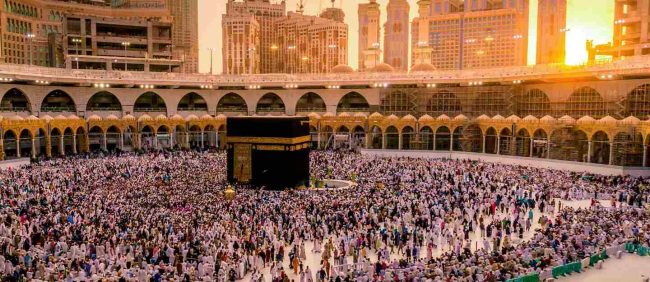
Hajj : Embracing Faith and Unity on the Sacred Pilgrimage
Hajj is an annual Islamic pilgrimage to Mecca, the holiest city for Muslims in Saudi Arabia. Hajj is an obligatory religious pilgrimage for Muslims. All adult Muslims have to do it at least once in their life if they are physically and financially able and their family is able to support themselves in the absence of the pilgrim.
Hajj is one of the Five Pillars of Islam, which are the core beliefs and practices that define a Muslim’s faith and actions. Performing Hajj is a religious duty that every Muslim who is physically and financially able must undertake at least once in their lifetime. This pillar underscores the centrality of pilgrimage in the Islamic faith. Hajj commemorates the trials and experiences of Prophet Ibrahim (Abraham), his wife Hagar, and their son Ismail (Ishmael). Key rituals such as the Tawaf (circumambulating the Kaaba) and the Sa’i (walking between the hills of Safa and Marwah) mirror the actions of Hagar as she searched for water for her son, symbolizing faith and perseverance.

The pilgrimage includes rituals that emphasize charity and compassion, such as the act of sacrificing an animal during Eid al-Adha, which commemorates Prophet Ibrahim’s willingness to sacrifice his son in obedience to Allah. The distribution of the sacrificial meat to the needy reflects the values of generosity and social responsibility. The experience of Hajj often leads to a profound spiritual awakening and transformation. The pilgrimage is a unique opportunity for personal growth, reflection, and deepening one’s faith. Many pilgrims return from Hajj with a renewed sense of purpose and commitment to their religious practices.
It represents not just a significant religious event but also a logistical and humanitarian effort. The pilgrimage continues to be a powerful symbol of faith, unity, and perseverance for Muslims worldwide.
